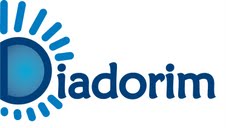TERAPIA NUTRICIONAL EM DISFAGIA: A IMPORTÂNCIA DO ACOMPANHAMENTO NUTRICIONAL DYSPHAGIA NUTRITION THERAPY: THE IMPORTANCE OF MONITORING NUTRITION
DOI:
https://doi.org/10.13037/rbcs.vol6n16.382Keywords:
disfagia, equipe multidisciplinar e terapia nutricional.Abstract
Essa revisão tem por objetivo descrever as características da terapia nutricional em pacientes que apresentam disfagia. Foi realizada uma revisão da literatura existente sobre o tema em questão, mediante consultas à base de dados de revistas científicas indexadas na área de saúde e também a livros didáticos. A disfagia é um distúrbio de deglutição caracterizada pela dificuldade de deglutir os alimentos, e pode ser causada por alterações neurológicas, funcionais e/ou estruturais. Pode ser classificada em sete níveis, de acordo com sua severidade, sendo o nível 1 o mais grave, necessitando da terapia enteral, e o nível 7, a condição normal de deglutição. A disfagia é uma condição de saúde que requer intervenção de uma equipe multidisciplinar, e o trabalho do fonoaudiólogo e do nutricionista merece destaque. A terapia nutricional e exercícios de motricidade oral são fundamentais para a reabilitação do paciente disfágico e para que ocorra a transição da dieta enteral para a dieta oral. Cabe à equipe estimular a adesão ao tratamento e seus benefícios na recuperação da autoestima e do bem-estar emocional e nutricional do paciente.Downloads
Downloads
Issue
Section
ARTIGOS DE REVISÃO
License
Policy Proposal for Journals offering Free Delayed Access
Authors who publish in this magazine agree to the following terms:
- Authors maintain the copyright and grant the journal the right to the first publication, with the work simultaneously licensed under a Creative Commons Attribution License after publication, allowing the sharing of the work with recognition of the authorship of the work and initial publication in this journal.
- Authors are authorized to assume additional contracts separately, for non-exclusive distribution of the version of the work published in this magazine (eg, publishing in institutional repository or as a book chapter), with the acknowledgment of the authorship and initial publication in this journal.
- Authors are allowed and encouraged to publish and distribute their work online (eg in institutional repositories or on their personal page) at any point before or during the editorial process, as this can generate productive changes, as well as increase impact and citation of the published work (See The Effect of Open Access).









